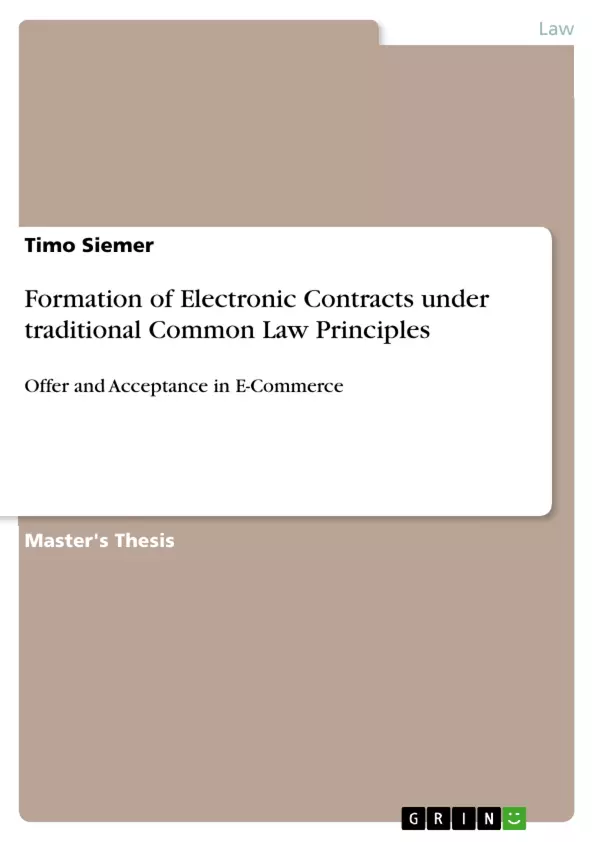Approximately eight years ago, an electronic invention called the Internet has initiated a phenomenon of exuberant fascination and economic upturn of individuals and businesses at the same time. The steady increasing amount of online users presents a beneficial medium through which commercial entities can advertise and sell their commodities without mentionable delay. Potential consumers have borderless access to products at competitive prices independent of regional distances.
Consequently, it is simply to ask the question "How do people contract over the Internet and are the familiar Common Law principles applicable?" This question is in particular in such an extent controversial and important to resolve, since there is no English court which has dealt with this subject so far.
As the traditional contract law has been developed and modified due to new and unfamiliar communication means over centuries, it may be that the existing principles are hardly applicable and insufficient to determine the formation of an electronic contract. Though, it is also imaginable that courts may easily alter the contract law rules to an appropriate extent as they already did with other communication methods.
This dissertation is concerned with the demanding topic of formation of contracts in the area of electronic commerce. It tackles legal issues in an environment of various forms of commercial and non-commercial activities using electronic means. As the fields of electronic commerce and practicing business online are constantly increasing all over the globe, legal issues of complex content are steadily challenging traditional law principles, courts, lawyers and legal scholars to develop governing laws and adequate solutions.
The dissertation faces and investigates how existing concepts of contract law may apply to cyberspace in a variety of contractual situations and which kind of issues may occur. Hence, the dissertation endeavours to provide contributions in order to clarify imaginable e-commerce conflicts and discloses possible solutions to dispel existing uncertainties of e-commerce users.
In order to determine why certain sectors of electronic commerce comprise a multitude of interesting and challenging aspects for every legal practitioner and every person operating online, it is necessary and expedient to provide a comprehensive overview of the broad field of e-commerce and to what extent the dissertation investigates present issues.
- Citation du texte
- Timo Siemer (Auteur), 2008, Formation of Electronic Contracts under traditional Common Law Principles, Munich, GRIN Verlag, https://www.grin.com/document/176367



